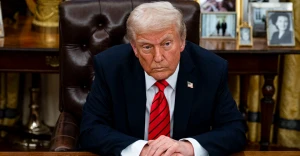
Kremlin orders security services to prepare for new military mutiny - media
The Kremlin believes that even after the elimination of Wagner PMC founder Yevgeny Prigozhin, there is a threat of a new military mutiny in Russia
This is reported by The Moscow Times, citing sources.
According to sources from law enforcement and government agencies, the security services are already working to control and prevent "protests" like the one organized by the Wagner PMC in late June.
The tanks, which came within 200 kilometers of Moscow, made an "indelible impression" on Putin. Prigozhin not only defied the army command, but also disobeyed a personal order from the president, and was therefore considered a threat to the regime, the four sources said.
Prigozhin's legacy is military units with combat experience in Ukraine, Africa, and the Middle East, backed by a media empire of Telegram channels and political strategists. According to sources, the Kremlin will not be able to preserve the Wagner PMC in its current form.
"Many members of the Wagner PMC believe that the authorities may be behind (Prigozhin's death). And the authorities cannot ignore such risks," said Oleg Ignatov, an analyst at the International Crisis Group.
Two days after Prigozhin's liquidation, Russian President Vladimir Putin signed a decree requiring the Wagner fighters to swear allegiance. All members of non-military paramilitary groups, including volunteer battalions and territorial defense, are required to take an oath in front of the national flag and swear to defend the "constitutional" order.
"Putin wants to tighten control over the Wagner PMC to make sure he doesn't face a repeat of the crisis in the future," said Natia Sescuria, a research fellow at the Royal United Services Institute in London.
Prigozhin's mutiny and plane crash
Allegedly, Russian troops launched a missile attack on the Wagner base. Yevgeny Prigozhin, the leader of the Wagner PMC, announced a "march of justice" and stated that 25,000 mercenaries were heading to Moscow after the Russian leadership refused to hand over Defense Minister Sergei Shoigu and Chief of the General Staff Valery Gerasimov.
However, on the evening of June 24, the press service of the self-proclaimed President of Belarus, Alexander Lukashenko, released a statement in which the head of the Wagner PMC stated that he was ready to stop the advance of his mercenaries' military convoys, which were already approaching Moscow, and to reach an agreement with the Kremlin. Prigozhin allegedly agreed on this during a conversation with Lukashenko.
Subsequently, Prigozhin and all his fighters left the headquarters of Russia's Southern Military District. Russian leader Vladimir Putin promised that Prigozhin would be able to go to Belarus, and Russia would drop the criminal case against him.
On June 26, Putin gave a speech in which he offered the Wagner PMC fighters three options for future actions: join the Russian Defense Forces, go to Belarus with other PMC members, or return to their families.
On June 27, the Federal Security Service of Russia announced that it dropped the criminal case related to the armed plot, in which Wagner PMC leader Yevgeny Prigozhin was involved.
Meanwhile, Wagner leader, Yevgeny Prigozhin, said that the main goal of the mutiny was "to prevent the destruction of the Wagner PMC, not to overthrow the government" and called it a "march of justice." He also claimed that the offensive on Moscow had stopped because the mercenaries "did not want to shed much blood."
On the same day, the self-proclaimed President of Belarus confirmed the arrival of Yevgeny Prigozhin in the country. According to him, the Wagner mercenaries who arrived with him would not guard the Russian tactical nuclear weapons stationed there.
On August 23, a business jet belonging to Yevgeny Prigozhin, an Embraer aircraft, crashed in Russia's Tver region, resulting in the confirmed deaths of 10 individuals. Among the passengers was Dmitry Utkin, a key figure in Wagner PMC. Multiple theories have emerged about the crash: 1) the plane might have been downed by an S-300 anti-aircraft missile system; 2) it could have been hit by air defense systems; 3) an explosion might have occurred onboard.
Subsequently, the Institute for the Study of War suggested that Russian President Vladimir Putin might have ordered the assassination of Wagner PMC leader Yevgeny Prigozhin to reassert dominance and seek revenge.
After that, on August 25, self-proclaimed President of Belarus Alexander Lukashenko said that the Wagner mercenaries would continue to be based in the country, despite Prigozhin's alleged death.
- News











































